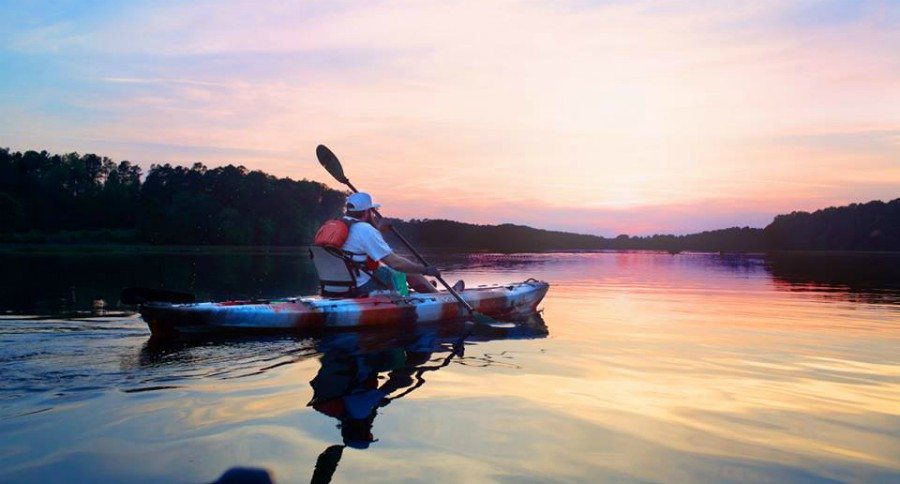Freshwater and saltwater kayaks have a few features that set them apart.
There is undoubtedly too much to think about if you're considering a new kayak these days, and it really is tough to make sense of all the combined information to choose what's best.
Ideally, you know what you're going to use the kayak for, and you've set your sights on something that will work. One thought that's sometimes neglected, however, is the difference between a saltwater and freshwater kayak, and how that might affect things.
It's important to note that the most ideal situation is often a combination of features good for saltwater and freshwater. Come to think of it, bringing the best of both worlds is what makes a good, versatile kayak.
To get a good idea of that notion, take a look at Vibe Kayaks, a company that takes a lot of expertise and puts it to good use, especially for the kayak angler. If you're interested in learning even more about how cool kayaks can be, Vibe is the place to go.
Now then, on to the big differences, and the things you should look out for, whether you're primarily going to fish in saltwater or freshwater.
Shape
In general, a kayak meant for the ocean will be long, slim, and rather pointy. A river kayak tends to be flatter and shorter, therefore easier to maneuver in tighter spaces. Saltwater kayakers will appreciate the ability to quickly speed up when traveling in a straight line, but when it comes time for tight turns it tends to be a little more difficult.
You'll likely encounter the term "touring," which is really just another way of calling them sea kayaks. But it's also a good reminder that true sea kayaks are meant to be cruised, like a big Cadillac.
And if you're fishing in saltwater, the chance of hooking something that's big enough to "rock the boat" increases. That's why a saltwater fishing kayak generally takes on a more stable, sit on top style.
Storage
Odds are a saltwater kayak is going to have ample storage, and likely more secure than other styles. This makes sense, since rough waters increase capsize potential, and losing a lot of gear in the breakers is a major pain.
It's fair to assume saltwater fishermen, or even just saltwater kayakers, are going to be required to carry a bit more than usual with them, so this is a welcome feature for most.
Freshwater kayaks, on the other hand, certainly contain their share of storage, but not quite to the same extent. Think about it: If you only strap a tackle bag or small cooler to your kayak while traversing a river or lake, you're probably going to be just fine.
The best kayaks, again, take both of these sides into consideration, and find a good balance.
Durability
Now, no one would ever claim a kayak they make isn't durable, but the materials used and building process can make a difference, and depending on your style of kayaking, will come into play.
A saltwater kayak is almost always going to be tougher, ready to take on more of a beating from the surrounding elements. That will usually make them heavier, and sometimes a little higher in overall price.
Freshwater kayaks don't have to take quite the same level of precaution when it comes to bumps, bruises, and potential to wear down. This is reflected in the overall price, for the most part.
Like we said, if it isn't claimed as durable, the company obviously has their priorities out of line.
It's admittedly a little tough to completely break down the differences in a saltwater vs. freshwater kayak system, because the lines between the two are beginning to fade. And that's a good thing, because versatility is often one of the main things people look for anyway.
Remember, when you're ready to search for the kayak that will get you where you need to go, Vibe Kayaks will be ready and waiting.
NEXT: WIDE OPEN SPACES EDITORS HAVE THEIR SAY ON THE IDEAL FISHING KAYAK




